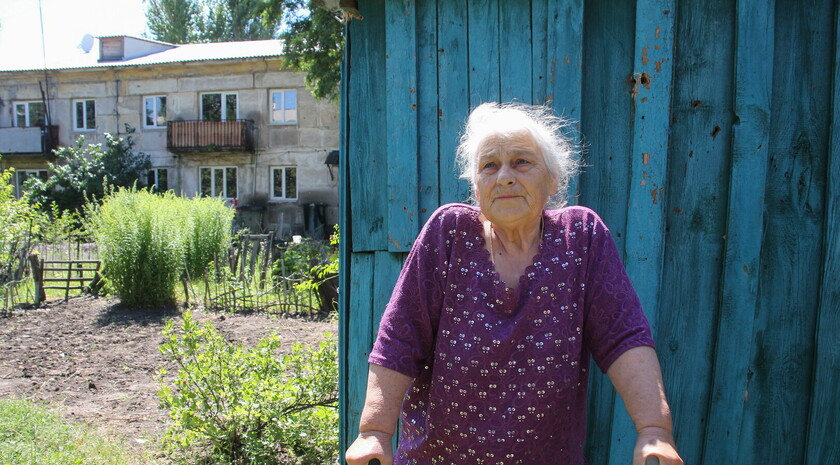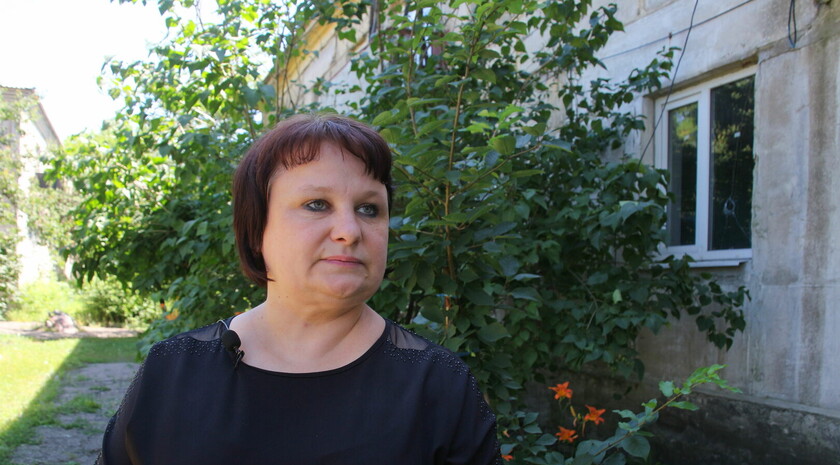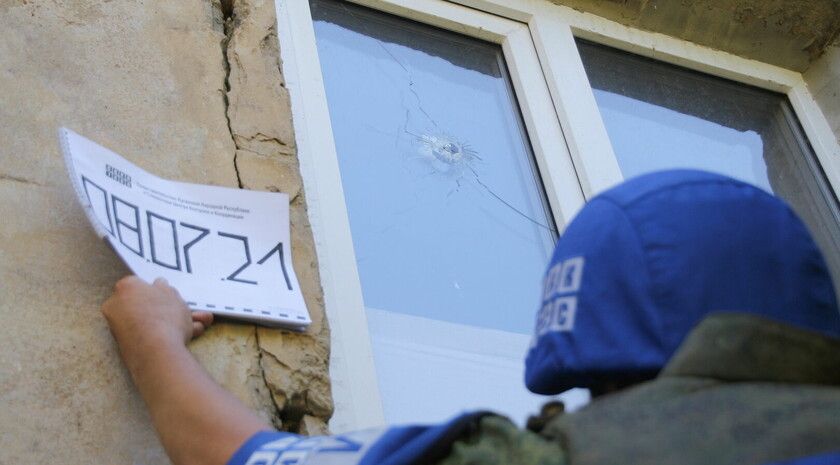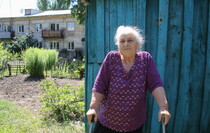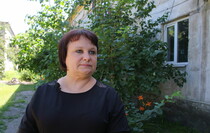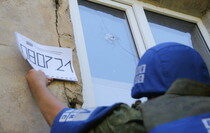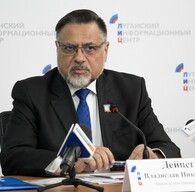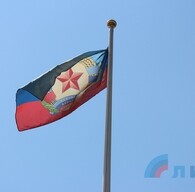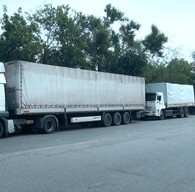The strike at the Donetsky township by Kiev forces ruined the fragile hope for lasting ceasefire, local residents told the Lugansk Media Centre.
On July 7, Ukrainian forces fired 120mm mortars at Donetsky seriously wounding a local resident and damaging three houses.
Pensioner Lidia who witnessed the shelling said that her neighbour was wounded as she was redoing a flower bed; when the shelling began she left the street in time but then remembered leaving a gardening tool behind and returned to the flower bed hoping that Kiev forces would not shoot at the township centre.
“We have not seen such powerful strikes for a long time. We’ve already got used to Zhelobok coming under fire, so we didn’t pay much attention to the shelling as it began,” the pensioner said. “But what happened yesterday made me fear that I wouldn’t live till the morning. I had to drink a “bucketful” of heart medicine.”
She said that the township had lived a quite peaceful life since the beginning of this year; people stopped fearing to come out into the streets and believed that the ceasefire would hold, but when the shelling resumed, Donetsky residents stopped feeling safe.
“Rascals, they (Ukrainian army) have come to liberate the land, but this is our land! Our grandfathers, great-grandfathers and children were born here. We were born here, who are you defending us here from? From ourselves or Russians? We’ve never seen them (Russian servicemen) here; it’s our guys (who are defending the township),” the woman said.
Donetsky vital infrastructure chief specialist Inna Kalyuzhnaya said that it had been a long time since Kiev forces fired mortars at the township.
“People are frightened. Such a terrible strike has not happened for a long time. Children were out on the playground (at the moment of the strike) as we assumed that the settlement would not be attacked; they managed to take the children away from the street on time," she said.
Kalyuzhnaya said that Kiev forces had fired at the renovated apartment houses that had sustained damage in earlier strikes.
LPR leader Leonid Pasechnik said that Kiev’s strike at Donetsky showed reluctance to implement the Minsk Agreements .
The Additional Measures to Strengthen the Ceasefire, effective since 00:01 July 27, 2020, ban offensive and commando operations, use of unmanned aerial vehicles, deployment of heavy armaments in or in proximity to residential areas etc. The additional measures envision punishment for violators and the use of the coordination mechanism to respond to ceasefire violations. Return fire is allowed in case of offensive, if the order is given by the leadership of Ukrainian forces or DPR and LPR People’s Militias after the unsuccessful attempt to use the coordination mechanism. The Contact Group shall be notified about such orders.
The members of the Contact Group have announced ceasefire more than 20 times since the autumn of 2014. Kiev forces regularly violated the truce opening fire with large calibre artillery, mortars and tank guns which were to have been withdrawn in accordance with the Minsk agreements.
The Ukrainian government launched the so-called anti-terrorist operation against Donbass in April 2014. Conflict settlement relies on the Package of Measures for the Implementation of the Minsk Agreements, signed on February 12, 2015 in the Belarussian capital by the Contact Group members and coordinated by the Normandy Four heads of states (Russia, Germany, France and Ukraine). The document provides for ceasefire and withdrawal of heavy weapons from the contact line. *i*s
